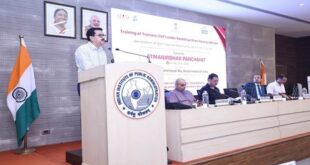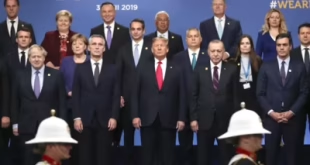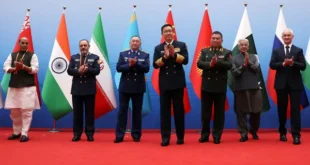- The Ministry of Electronics and Information Technology (MeitY) issued a draft proposal for public comment on a set of proposed amendments to the Information Technology (Intermediary Guidelines and Digital Media Ethics Code) Rules, 2021.
- The draft document was however withdrawn the same day.
- The Information Technology (Intermediary Guidelines and Digital Media Ethics Code) Rules, 2021 (IT Rules, 2021) was notified in February 2021.
- Broadly, the IT Rules (2021) mandate social media platforms to exercise greater diligence with respect to the content on their platforms.
- They are required to establish a grievance redressal mechanism and remove unlawful and unfitting content within stipulated time frames.
- The grievance officer of the platform’s redressal mechanism is responsible for receiving and resolving complaints of the users.
- She/he is expected to acknowledge receipt of the complaint within 24 hours and dispose of the same in an appropriate manner within 15 days.
- Its access and spread by any other means on the platform should also be disabled.
- The privacy policies of the social media platforms must ensure that users are educated about not circulating copyrighted material and anything that can be construed as defamatory, racially or ethnically objectionable, paedophilic, threatening the unity, integrity, defence, security or sovereignty of India or friendly relations with foreign states, or violative of any contemporary law.
Changes Proposed in the Withdrawn Draft
- It proposed an additional level of oversight, namely, the ‘Grievance Appellate Committee’, functioning over and above the intermediary’s grievance redressal officer.
- Broadly, in case a user is not satisfied with the resolution provided by the intermediary, she/he can appeal against the decision at the appellate rather than going directly to court.
- However, this did not take away the user’s right to appeal in any other court.
- The draft stipulated that all orders of this appellate must be complied with.
- The suggested question on ‘oversight’ stemmed from the fact that the appellate was to be constituted by the Central Govt empowered to appoint the Chairperson and other members.
Issue with the IT Rules 2021
- This would have made the government the arbiter of permissible speech on the internet and incentivised social media platforms to suppress any speech that may not be palatable to the government.
- The draft put forth the obligation that all social media intermediaries resolve all complaints within 72 hours of reporting.
- Intermediaries are known to invest sizable time in thoroughly scrutinising and determining the content and user accounts they are called to censor.
- The shortened timelines therefore invited fears of a hastier approach to get things done.
Legal Challenges
- The imposition of sub-clauses 1 and 3 of Rule 9 of the legislative guidelines were stayed in 2021.
- These sub-clauses dealt with the ‘Code of Ethics’ for online publishers dealing with news and current affairs content and/or curated content.
- The sub-clauses had stated that the entities subscribe to a three-tier mechanism in dealing with grievances (relevant to their platform) so as to adhere to their code.
- This entails self-regulation by the publishers (level I), by self-regulating bodies of the publishers (level II) and finally, an oversight mechanism by the Central Govt (level III).
- The Bombay High Court however ruled, “People would be starved of the liberty of thought and feel suffocated to exercise their right of freedom of speech and expression, if they are made to live in present times of content regulation on the internet with the Code of Ethics hanging over their head as the Sword of Damocles.”
Way Forward
- Making platforms share more information could prove counterproductive in a country where the citizens still do not have a data privacy law to guard themselves against excesses committed by any party.
- In this context, there is a need to expedite the passing of the personal data protection bill, 2019.
- After that, if regulation is still deemed to be necessary, then it must be implemented through legislation that is debated in Parliament instead of relying upon executive rule-making powers under Section 69A of the IT Act.
SOURCE: THE HINDU,THE ECONOMIC TIMES,MINT
 Chinmaya IAS Academy – Current Affairs Chinmaya IAS Academy – Current Affairs
Chinmaya IAS Academy – Current Affairs Chinmaya IAS Academy – Current Affairs



